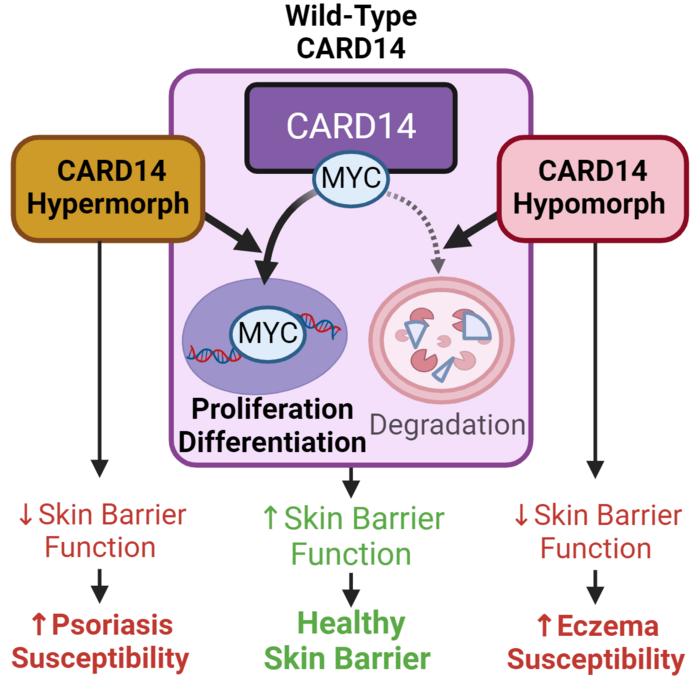The newly discovered CARD14-MYC signaling pathway may play a crucial role in skin barrier function, new research suggests. Researchers suggest that CARD14 regulates skin barrier function through two mechanisms: stimulating NFκB to establish an antimicrobial barrier and stimulating MYC to help build a physical barrier.
Previous research has suggested that the CARD14-NFκB signaling pathway could play a role in psoriatic diseases and atopic dermatitis.
“We found that CARD14 directly binds and regulates MYC, a protein involved in controlling cell growth that can contribute to cancer when it malfunctions. Our study shows that the proper interaction between these two proteins is important for a healthy skin barrier and protecting against eczema and psoriasis,” says study co-author Stanley DeVore, PhD. “Additionally, given the association of MYC with cancer, our findings also suggest that dysfunctional CARD14-MYC signaling may contribute to certain types of cancer throughout the body.”
The study, published online in Cell Reports, reports that altered CARD14-MYC signaling could affect barrier function and allergic diseases in other tissues, contributing to asthma by affecting airway tissue linings or contributing to eosinophilic esophagitis by affecting the digestive tract. The novel pathway may also contribute to certain cancers that begin in epithelial tissues.
CAPTION: CARD14 directly binds and regulates MYC, a protein involved in controlling cell growth that can contribute to cancer when it malfunctions. A study published in Cell Reports shows that the proper interaction between these two proteins is important for a healthy skin barrier. Credit: Cincinnati Children’s

The post Research Implicates New Pathway in Skin Diseases appeared first on Dermatology Education Foundation.
